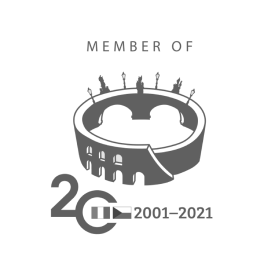
CZECH REAL ESTATE REBOUND: THE 5 KEY TRENDS TO WATCH IN 2025
After a tough period marked by high interest rates and declining demand, the Czech real estate market is showing clear signs of recovery. The year 2025 is expected to be a turning point for housing, investments, and rental opportunities across the country. Whether you’re a tenant, a potential buyer, or an investor, understanding the major forces shaping the market is essential. Here are the five most significant real estate trends in the Czech Republic for 2025—along with practical tips to help you make the best decisions.
1. Property and Rent Prices on the Rise
Both rental rates and property prices are predicted to continue their upward trend. According to recent data from European Housing Services and Bezrealitky, average rents in the country are expected to rise by 17%, echoing last year’s growth. In Prague, the most expensive region, the average rent sits at 412 CZK per square meter and is projected to increase moderately in 2025. Meanwhile, prices for owner-occupied homes are forecasted to rise between 5% and 10%. For example, a single-family home in the capital currently costs about 108,000 CZK per square meter.
TIP: Consider locking in your rental contract or purchasing now to avoid further price increases. Delaying could lead to significantly higher expenses in just a few months.
2. Rising Demand for Older Properties
Due to a shortage of new construction projects, many home seekers are turning to older housing stock. These older properties, especially when well-maintained, offer more affordable alternatives to newly built units. Lumír Kunz from FérMakléři.cz notes that a potential dip in mortgage rates could make these older homes even more attractive, possibly driving their prices up.
TIP: When considering older properties, evaluate their market value based on location, condition, and future potential. Also, ensure the property complies with current energy-efficiency regulations, as retrofitting costs can be substantial.
3. Expansion of Institutional Rental Housing
The institutional rental segment is expected to grow further in 2025. These professionally managed apartments cater mainly to higher-income tenants and are increasingly concentrated in Prague. Developers like Penta Real Estate plan to build hundreds of micro-apartments in the capital. Thousands of similar units are expected to hit the market in the coming years, providing premium amenities and stable management.
TIP: For investors, this sector offers solid long-term returns. While the initial investment might be higher, the reliability and professional oversight make institutional rentals an attractive asset class.
4. High Mortgage Rates Continue to Burden Families
Despite improvements in some areas, mortgage interest rates remain a significant barrier for many households. This continues to suppress demand for new family homes and slows the construction of new developments. Most analysts agree that mortgage rates will not decline substantially in 2025, keeping the pressure on buyers.
TIP: Use platforms like Banky.cz to compare mortgage offers and identify the best possible terms. Even small differences in interest rates can have a major impact on long-term affordability.
5. Commercial Real Estate Reclaims Investor Attention
The commercial real estate sector is bouncing back, fueled by growing investor confidence and a rebound in urban development. Hotels, office buildings, and mixed-use properties are once again drawing attention. A notable example is the sale of Prague’s Hilton Hotel for EUR 300 million. Meanwhile, logistics hubs and shopping centers remain in strong demand, driven largely by the continued growth of e-commerce.
TIP: Focus on commercial properties that meet modern energy and design standards. Buildings that comply with EU sustainability criteria will not only be more attractive to tenants and buyers but will also ensure long-term investment value.
In summary, the Czech real estate landscape in 2025 is defined by rising prices, renewed investor interest, and evolving consumer preferences. Those who stay informed and act strategically will be best positioned to navigate this dynamic environment—whether their goal is securing a home or generating returns from smart investments.
Sources: https://www.expats.cz/




